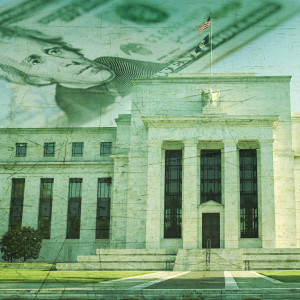By KIMBERLEY HAAS
With the Federal Reserve raising interest rates seven times this year – and with more rate hikes on the way in 2023 – people are wondering if their policies to cool inflation are unfairly punishing those in the housing market.
The Fed’s policy-setting committee raised its benchmark rate a half-point to 4.5% this week. The goal is to reach 2% inflation by controlling monetary policy.
The chair of the Federal Reserve opened his press conference on Wednesday saying that he would like to underscore for the American people that they understand the hardship that high inflation is causing.
Jerome Powell said the U.S. economy has slowed significantly from last year’s rapid pace.
“Recent indicators point to modest growth of spending and production this quarter. Growth in consumer spending has been slowed from last year’s rapid pace, in part reflecting lower real disposable income and tighter financial conditions,” Powell said.
Powell said activity in the housing sector has weakened significantly, largely reflecting higher mortgage rates.
Allan Chernoff, a former senior correspondent for CNBC, responded by saying the members of the Federal Reserve Board are in the process of killing the American dream of homeownership.
“As the central bank continues to aggressively raise interest rates in its battle to get inflation under control, the housing market is collateral damage. Sadly, it didn’t have to be this way,” Chernoff wrote.
Chernoff explained that percentage point increases dramatically affect the housing market.
“For every percentage point increase in mortgage rates, the number of households who can afford a $400,000 mortgage declines by 3 to 4 million, according to Freddie Mac, the federally sponsored enterprise that promotes home lending. Freddie Mac estimates that 15 million potential homebuyers have been priced out of the housing market this year because, for the first time in U.S. history, the average 30-year fixed-rate mortgage rate has more than doubled in a year’s time, from about 3% to more than 6%,” Chernoff wrote.
It is not yet clear how many people will be pulling out of the housing market with this new announcement right before the end of the year.
Mortgage loan application volume rebounded last week, breaking a weeks-long streak of declines, according to the Mortgage Bankers Association’s weekly survey.
The adjusted Market Composite Index, a measure of mortgage loan application volume, increased by 3.2%.
Mortgage rates went down this week and some are saying that is in part due to the fact that this rate hike was smaller than previous ones.
Nadia Evangelou, senior economist and director of real estate research at the National Association of Realtors said mortgage rates dropped even further this week as inflation continued to ease and the Federal Reserve switched to a smaller interest rate hike.
Previous hikes earlier this year were 0.75%.
“As a result, according to Freddie Mac, the 30-year fixed mortgage rate fell to 6.31% from 6.33% the previous week. The monthly mortgage payment for a home loan of $400,000 is currently $2,480 compared to $2,680 five weeks ago when rates were above the 7% threshold,” Evangelou said in a statement.
Evangelou said although mortgage rates are more than double those of a year ago, home prices continue to be higher than the previous year due to limited inventory.
“Looking at the housing supply by income level, buyers earning $75,000 face the most significant housing shortage compared to any other income group. In a balanced market, these buyers should be able to afford half of the homes listed for sale. However, these middle-income buyers can afford to buy only 20% of all available listings,” Evangelou said.
Demand has dropped in the second half of 2022 due to interest rate hikes, limited inventory, and housing prices that are still going up in many markets.
Redfin Deputy Chief Economist Taylor Marr said slowing inflation and the hope that the Fed will ease on rate hikes in 2023 may improve homebuying demand.
That would motivate buyers who have pulled out of the market, and sellers who have delisted their homes because they want to keep their low-interest mortgages, experts say.
Follow Us On Twitter:
Read More Articles By Kimberley Haas:
Florida Brokerage Firm Sued By Pennsylvania AG For Allegedly Misleading Consumers
California Broker Sentenced To Years In Prison For Mortgage Loan Fraud
Gallus Insights Aims To Help Lenders Make Data-Driven Decisions
